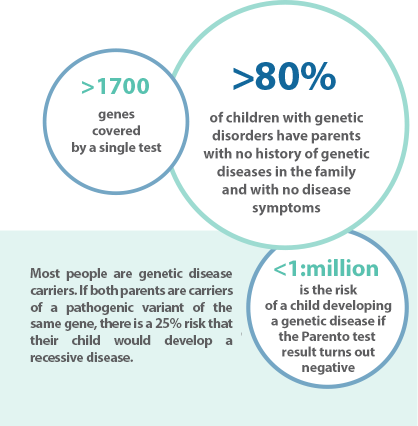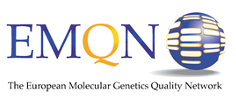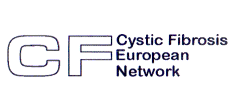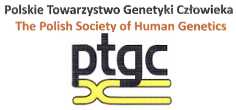Parento test
Parento test
Test for parents-to-be

Thanks to the Parento test, couples can calmly plan parenthood. A negative Parento test result means that your future child will not develop any of 1,300 diseases. It gives you peace of mind even before you get pregnant. The test is recommended to all parents-to-be.

The Parento test is an accurate state-of-the-art genetic test that checks if future parents are carriers of genetic diseases which may be passed on to their children.
Using an innovative technology, namely Next-Generation Sequencing (NGS), and classic genetic testing methods we analyse over 1,700 genes that play a key role in inheriting more than 1,300 diseases. A negative Parento test result means that the risk of your child developing a given disease is less than one in a few millions.
Using an innovative technology, namely Next-Generation Sequencing (NGS), and classic genetic testing methods we analyse over 1,700 genes that play a key role in inheriting more than 1,300 diseases. A negative Parento test result means that the risk of your child developing a given disease is less than one in a few millions.
The genetic disorder diagnosis panel we have developed covers among others
spinal muscular atrophy (SMA), cystic fibrosis (CF), congenital deafness, Leber congenital amaurosis (LCA), congenital adrenal hyperplasia (CAH), phenylketonuria (PHU), fragile X syndrome (FXS), mucopolysaccharidosis, severe combined immunodeficiency (SCID), osteogenesis imperfecta (OI), epilepsy, and intellectual disability.
The Parento test has two options:
- OPTIMUM that covers more than 85% hereditary genetic diseases;
- MAXIMUM is the most extensive test of this kind available in Poland. As it encompasses 1,700 genes, it can detect 95% of risk group couples.li>
The Parento test can be taken by a couple or by one of the partners. A full list of diseases covered is available at: www.parento.pl
Who should take the test?
- The Parento test is recommended to all couples who plan to have children, to check if the parents-to-be are genetic disease carriers.
- It is of particular importance to people who happen to be relatives and plan to have children.
- It is dedicated to couples who use assisted reproductive technology.
- It is useful to those who face reproductive issues
- It is recommended for anyone with a family history of genetic diseases or diseases of unknown origin.
- The test is recommended if there have been sudden deaths of children in the family.
If the test result turns out positive:
Knowing you are a genetic disease carrier before you conceive a child allows you to make an informed decision which can affect your children’s health. The couples whose results are positive have several options to choose from:
- In vitro fertilisation (IVF) with a pre-implantation genetic diagnosis (PGD): each embryo will be tested and only embryos free from the disease carried by both parents will be implanted;
- Natural conception supported by a prenatal genetic diagnosis based on chorionic villus sampling (CVS) or amniocentesis using state-of-the-art genetic testing methods;
- Adoption of an egg cell from a healthy donor;
- Use of sperm from a healthy donor;
- Adoption.
If the Parento test result turns out positive already during pregnancy, you can undergo state-of-the-art invasive prenatal testing and plan your delivery at a higher referral level hospital with experience in deliveries of children with genetic diseases. It is also a chance for the parents to prepare and learn how to take care of a sick child.
How is the test performed?
The Parento test is conducted using a saliva sample taken using a dedicated kit. The sample is sent to our Warsaw lab to be analysed. We can also use your blood for testing. Samples are collected at Genomed or at Diagnostyka SA blood collection centres. If the test result is positive, you will need to discuss it with a doctor from our genetic counselling centre. You can visit us in Warsaw or have a consultation on-line. There is no need to confirm the Parento test result by taking another genetic test.
Technology
Among a few thousand recessive and sex-linked genetic diseases, several dozen most frequent ones, such as spinal muscular atrophy (SMA), cystic fibrosis (CF), fragile X syndrome (FXS), congenital deafness and congenital adrenal hyperplasia (CAH) are responsible for the vast majority of high reproductive risk cases (more than 85%). This proves that checking for frequent mutations, which are not detected by NGS, currently the basic multigene assay tool, is essential for a full understanding of your disease carrier status. Parento is the only test available in Poland which applies NGS, but also MLPA and RFLP, to check for FXS, SMA, and CAH carriership risk.
Who is a genetic disease carrier?

Genetic disease carriers are usually healthy and have no symptoms, which makes it difficult to pinpoint who is a genetic disease carrier and who is not. If both parents are carriers of a pathogenic variant of the same gene, there is a 25% risk that their child would develop a recessive disease. If parents-to-be take the Parento test, they will know if they are genetic disease carriers and will be able to make informed decisions concerning reproduction.
More information at: www.parento.pl








